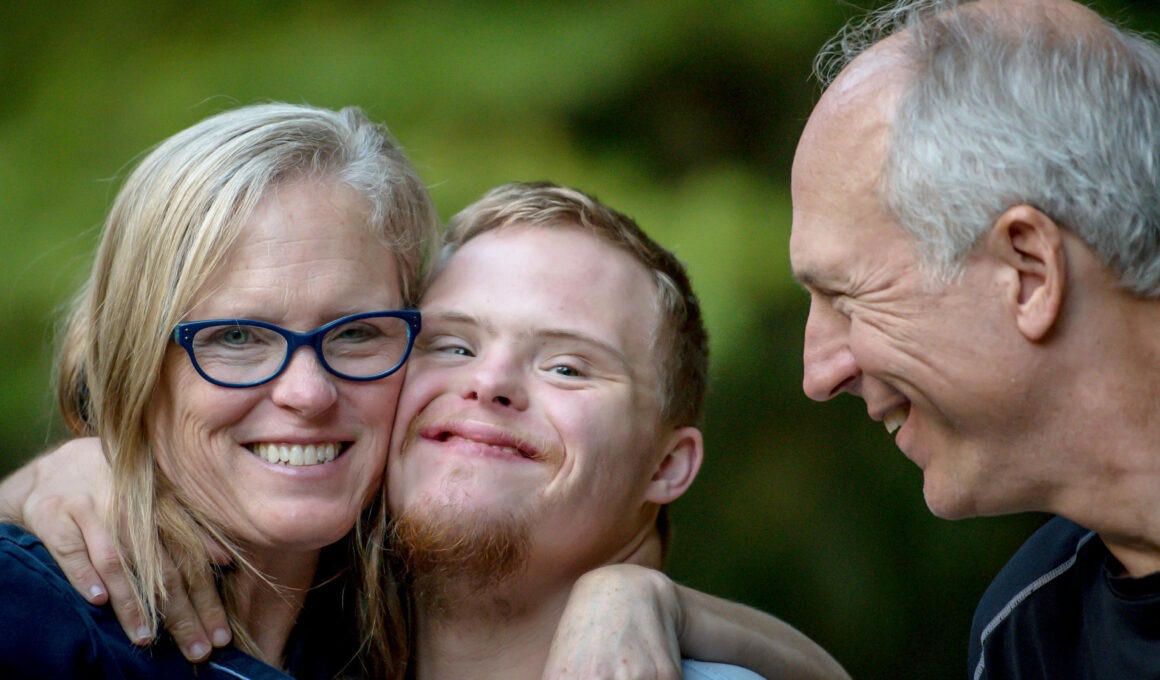As parents of differently abled children across the world unite to celebrate diversity and inclusiveness on 21st March World Down Syndrome Day – we are here to add to your knowledge (and join the celebrations of course).
In the spirit of this important day, it is important to reflect on the lives of those directly affected by Down Syndrome. Whether as parents to, siblings of, or personally affected individuals, there is something here for everyone.
As we explore the multifaceted world of Down Syndrome, there are many misconceptions and myths that must be explored as well as challenged. Parents of children with special needs already have a harder time navigating the parenting world.
Without the correct information and help, it becomes far more challenging to build a more inclusive society that helps parents of children with special needs as well as the children.
In honor of World Down Syndrome Day, we will delve into the myths and facts surrounding Down Syndrome, methods of early intervention and support, as well as forms of awareness and support.
What Is Down Syndrome?
Down syndrome, also known as Trisomy 21, is a genetic condition caused by the presence of an extra copy of chromosome 21. But what does that mean in simpler terms? Well, let’s break it down.
You see, our bodies are made up of tiny building blocks called chromosomes, and typically, we each have 23 pairs of them. However, in individuals with Down syndrome, there’s an extra copy of chromosome 21, making a total of 47 chromosomes instead of the usual 46. This extra genetic material can affect a person’s development in various ways, leading to both physical and intellectual differences.
Down syndrome is one of the most common genetic conditions, affecting approximately 1 in every 700 babies born in the United States. It occurs in people of all races and economic levels, and the likelihood of having a baby with Down syndrome increases with maternal age, particularly for women over the age of 35.
Signs and symptoms of Down syndrome can vary widely from person to person, but some common characteristics include:
- Distinctive facial features: Individuals with Down syndrome may have almond-shaped eyes, a flattened facial profile, and a small nose and mouth.
- Low muscle tone: Also known as hypotonia, this can affect motor skills and coordination.
- Developmental delays: Children with Down syndrome may reach developmental milestones, such as sitting, crawling, and walking, at a slower pace than their peers.
- Intellectual disability: Most individuals with Down syndrome have mild to moderate intellectual disability, but their cognitive abilities can vary widely.
- Heart defects: Approximately half of babies born with Down syndrome have congenital heart defects that may require medical intervention.
- Growth delays: Children with Down syndrome may grow at a slower rate than their peers and may be shorter in stature as adults.
- Speech and language delays: Many individuals with Down syndrome benefit from speech therapy to improve communication skills.
- Health conditions: In addition to heart defects, individuals with Down syndrome may be at higher risk for certain health conditions, such as hearing loss, vision problems, and thyroid disorders.
It is important to note that Down syndrome occurs spontaneously and is not caused by anything the parents did or did not do during pregnancy.
ALSO READ: Sleep Problems In Children With Special Needs
When Can I Learn If My Baby Has Down Syndrome?
Parents can often learn if their child has Down syndrome before birth through prenatal screening tests and diagnostic procedures. Prenatal screening tests, such as non-invasive prenatal testing (NIPT) and maternal serum screening (also known as the quad screen), can assess the risk of Down syndrome.
Factors such as maternal age, hormone levels, and the baby’s measurements can help your pediatrician with better predicting and diagnosing your baby. If a screening test indicates an increased risk, further diagnostic testing, such as chorionic villus sampling (CVS) or amniocentesis, may be recommended to confirm the diagnosis.
These diagnostic tests involve obtaining a sample of cells from the placenta (CVS) or the amniotic fluid (amniocentesis) to analyze the baby’s chromosomes. It’s important to discuss the benefits, risks, and limitations of prenatal screening and diagnostic tests with a healthcare provider to make an informed decision about testing during pregnancy.
Some features of Down syndrome may be detected during routine ultrasound scans performed during pregnancy, although ultrasound alone cannot definitively diagnose Down syndrome.
Down Syndrome: Myths vs Facts
Despite significant progress in understanding and supporting individuals with Down syndrome, misconceptions and myths about this condition persist. By debunking these myths and presenting the facts, greater understanding, acceptance, and inclusivity for individuals with Down syndrome and their families can be promoted.
Let’s explore 10 of the most common misconceptions and shed light on the realities of living with Down syndrome.
Myth 1
Down syndrome is a rare condition.
Fact: Down syndrome is one of the most common chromosomal conditions, occurring in approximately 1 in every 700 births worldwide.
myth 2
People with Down syndrome are always severely disabled.
Fact: The level of intellectual and physical disability associated with Down syndrome varies widely among individuals. Many people with Down syndrome lead fulfilling lives, participate in their communities, and achieve significant milestones.
Myth 3
Down syndrome is hereditary and runs in families.
Fact: Most cases of Down syndrome occur randomly as a result of a mistake in cell division during the formation of reproductive cells (sperm and egg). The likelihood of having a child with Down syndrome increases with maternal age, but the majority of babies with Down syndrome are born to younger mothers due to higher fertility rates in this age group.
ALSO READ: Celebrating Diversity & Inclusivity In Motherhood
Myth 4
People with Down syndrome all look alike.
Fact: While individuals with Down syndrome may share some physical characteristics, such as almond-shaped eyes, a flattened facial profile, and a small nose, they also exhibit a wide range of appearances, just like any other group of people.
Myth 5
People with Down syndrome cannot lead independent lives.
Fact: With appropriate support, education, and opportunities, many individuals with Down syndrome are capable of living semi-independent or fully independent lives. They can hold jobs, live on their own or with roommates, and contribute to their communities.
Myth 6
People with Down syndrome are always happy and affectionate.
Fact: While individuals with Down syndrome often exhibit positive traits such as kindness and sociability, they are also complex individuals with a range of emotions, just like anyone else.
Myth 7
Down syndrome can be cured or treated with medication.
Fact: Down syndrome is a genetic condition caused by the presence of an extra copy of chromosome 21. While there is no cure for Down syndrome, early intervention programs, educational support, and medical treatment for associated health conditions can help individuals with Down syndrome reach their full potential.
Myth 8
People with Down syndrome cannot learn or attend school.
Fact: Many individuals with Down syndrome attend mainstream schools and receive specialized education and support services tailored to their needs. With appropriate accommodations and teaching strategies, children with Down syndrome can learn and achieve academic success.
ALSO READ: Understanding Fine Motor Skills Development in Children
Myth 9
People with Down syndrome are always a burden on their families.
Fact: While caring for a child or family member with Down syndrome may present unique challenges, many families report that their loved one with Down syndrome brings joy, love, and valuable life lessons to their lives. Support networks and resources are available to assist families in meeting the needs of individuals with Down syndrome.
Myth 10
People with Down syndrome have a limited life expectancy.
Fact: With advances in medical care and treatment, the life expectancy of individuals with Down syndrome has increased significantly over the past few decades. Many people with Down syndrome now live into their 50s, 60s, and beyond, leading long and fulfilling lives.
While Down syndrome is a genetic condition, it doesn’t define who a person is. Each individual with Down syndrome is unique, with their own personality, strengths, and talents. And yes, they may face certain challenges, such as developmental delays or medical issues, but they also bring immense joy, love, and laughter to those around them.
Raising A Child With Down Syndrome
Parenting on its own is a challenge, especially for first-time parents. When it comes to raising a child with Down syndrome, the challenges as well as as rewards obviously increase. However, through the use of adequate support and resource, you can learn to navigate this journey effectively.
Here are some key considerations and strategies for families raising a child with Down syndrome:
Early Intervention Programs
Making use of early intervention services is crucial for children with Down syndrome. This will help you, as a parent, address developmental delays and promote optimal growth and learning. Early intervention programs include speech therapy, physical therapy, occupational therapy, and educational support tailored to your child’s specific needs.
Support Groups
Connecting with other parents of children with Down syndrome can provide invaluable emotional support, practical advice, and a sense of community. Joining support groups, attending parent education workshops, and participating in online forums can help you build relationships and share experiences with other parents and members who understand the unique challenges and joys of having a family member with Down Syndrome.
ALSO READ: 5 Bonding Tips For Including Your Newborn In Family Life
Monitoring & Care
Being present in your child’s life is crucial for their development and upbringing. With differently abled children, it is ever more important to be present and include them in daily life. While of course, that does not mean putting your own life on pause, there are alternative solutions to help you connect with your child even when you are not physically around them.
Tools such as the Invidyo Baby Monitor are an excellent addition to any new parents’ household. The advanced AI features help you monitor your child’s health, habits, sleep patterns, and also allows you to communicate with them even when you are away.
FIND OUT MORE ABOUT INVIDYO!
Inclusion
Every child deserves the opportunity to participate fully in school, community, and social activities, regardless of their individual abilities. Advocating for inclusive education and community programs can help ensure that children with Down syndrome have access to the same opportunities and experiences as their peers.
Educating Siblings
Siblings of children with Down syndrome may have questions and concerns about their sibling’s diagnosis and unique needs. Providing age-appropriate information, fostering open communication, and encouraging sibling bonding can help siblings develop empathy, understanding, and a strong sense of family unity.
Additionally, it is important that as a parent, you give enough attention to your other children as well so any feelings of resentment or neglect are avoided.
Celebrating Achievements
Celebrating every milestone and achievement, no matter how small, is essential for fostering a positive and supportive family environment. Recognizing and applauding the unique strengths, talents, and accomplishments of children with Down syndrome can boost their self-esteem and confidence and reinforce their sense of belonging and acceptance within the family.
While your child with Down Syndrome may not progress and develop in a typical manner, it is important that you notice and celebrate the little things. Even minor achievements deserve recognition.
Accessing Resources
Families raising a child with Down syndrome may benefit from accessing a wide range of resources and support services, including medical professionals, special education programs, community organizations, and government agencies. These resources can provide valuable information, guidance, and assistance in navigating the complex landscape of raising a child with Down syndrome.
Some resources than can help benefit you and family include:
- National Down Syndrome Society (NDSS): The NDSS is a leading advocacy organization that provides a wide range of resources, including educational materials, support programs, and advocacy initiatives for individuals with Down syndrome and their families.
- Down Syndrome Association (DSA): Many countries have local or national Down syndrome associations that offer support groups, parent education workshops, and community resources for families. These associations often provide information on medical care, education, and social services tailored to individuals with Down syndrome. You can connect with your local DSA through a simple online search.
- National Association for Down Syndrome (NADS): NADS is a nonprofit organization that provides support and resources to individuals with Down syndrome and their families. They offer parent mentoring programs, educational seminars, and social events for families.
- Global Down Syndrome Foundation (GDSF): GDSF is dedicated to improving the lives of people with Down syndrome through research, medical care, education, and advocacy. They offer educational webinars, medical resources, and support programs for families.
- Special Olympics: The Special Olympics provides sports training and competition opportunities for individuals with intellectual disabilities, including Down syndrome. Participation in Special Olympics programs can promote physical fitness, social inclusion, and personal growth for individuals with Down syndrome.
- Parent to Parent USA: Parent to Parent USA is a national nonprofit organization that connects parents of children with disabilities, including Down syndrome, with peer support mentors who have similar experiences. They offer online support groups, resource referrals, and educational materials for families.
Self-Care
Taking care of yourself is essential as a parent of children with Down syndrome. You must maintain your physical, emotional, and mental well-being. Practicing self-care activities, seeking support from friends and family, and prioritizing time for relaxation and personal interests can help you manage stress, prevent burnout, and be ever more prepared to face challenges.
ALSO READ: 13 Self Care Strategies For Parents
Future Planning
Planning for the future is an important consideration for families raising a child with Down syndrome. This includes financial planning, guardianship arrangements, and long-term care options. Consulting with financial advisors, estate planners, and legal professionals can help you create and prepare a comprehensive plan that ensures the well-being and security of your child as they transition into adulthood.
Embracing the Journey
Above all, embracing the journey of parenting a child with Down syndrome involves accepting and celebrating the unique gifts, abilities, and contributions. By cultivating a nurturing and supportive family environment, advocating for inclusion and equality, and fostering a sense of belonging and acceptance, you can create a fulfilling and meaningful life for your child.
Above all, it’s important to understand that Down syndrome is not a disease or an illness—it’s simply a variation of human diversity. And with the right support, resources, and opportunities, individuals with Down syndrome can lead fulfilling lives and make meaningful contributions to their families and communities.
So let’s celebrate the beautiful diversity of individuals with Down syndrome and embrace them for who they are—extraordinary individuals with limitless potential.










